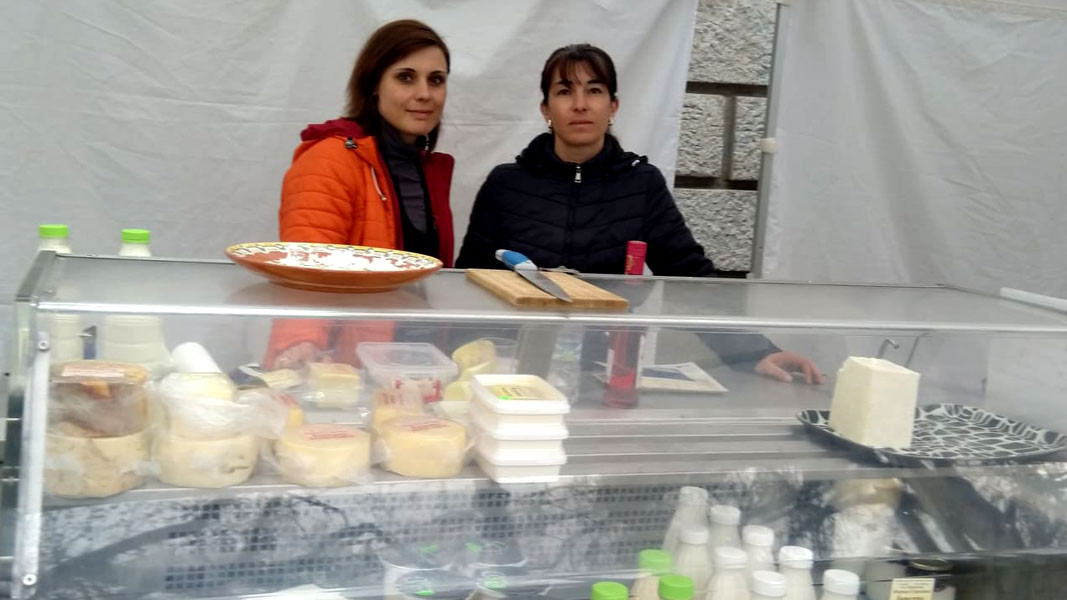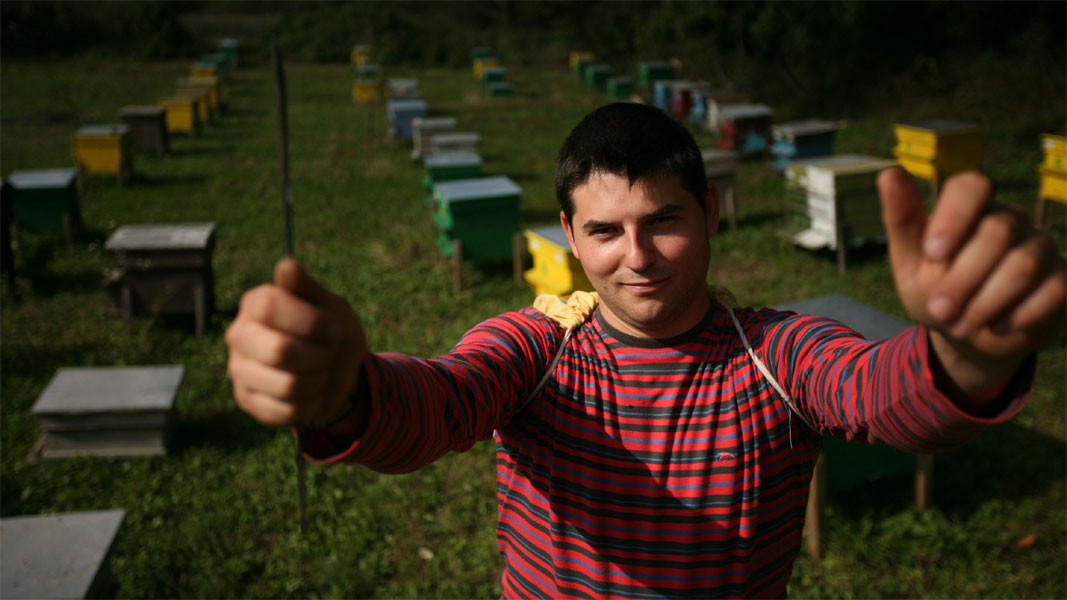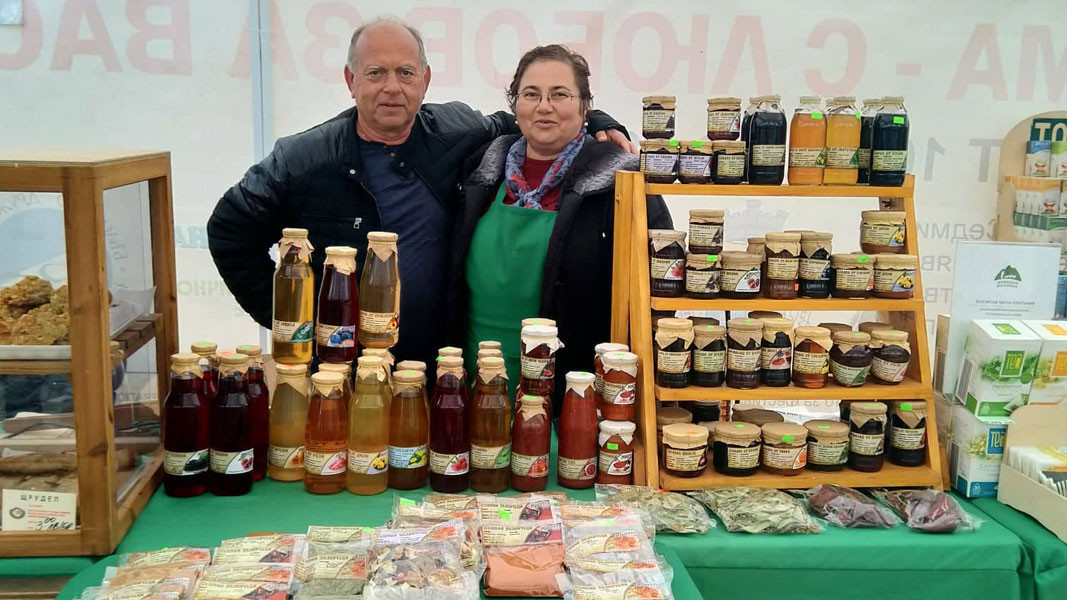Years ago, when the European Ecological Network NATURA 2000 was put in place, some people in Bulgaria, including politicians considered it more of an obstacle than a challenge leading to successful development. Despite the scepticism, environmental experts brought together by the Bulgarian-Swiss programme “Linking Nature Protection and Sustainable Rural Development” developed and applied, in practice, the economic potential the network offered. Gradually the environmentally-friendly endeavours of local entrepreneurs managed to breathe life into abandoned villages in the Western and Central portion of the Balkan mountain.
Yulia Stoyanova and Desislava Vurbanova run farms in these parts where time seems to have stood still – one in the village of Gintsi and the other in the village of Blagovets.
“The area is very clean, there are a lot of herbs growing in the pastures, everything is top quality,” says Yulia Stoyanova. “We raise cows and sheep. In Gintsi village I have a farm and a small shop. We sell yoghurt, cheese, farmers’ cheese. To tell you the truth it takes a lot of courage to start a business like this, there is a labour shortage.”

“That is the biggest problem – the scarcity of workers,” adds Desislava Vurbanova. “The responsibility is entirely ours – at the market, at the farm. There is no one we can rely on but ourselves.”
Teodor Pushkarov from Melene village has no one else to rely on either. He keeps 150 beehives in a Natura 2000 zone – the Western Balkan. Beekeeping is a way of life, he says.

“I have spent my entire adult life doing this. I am glad to be in this zone because the region is clean. On the other hand this is a part of the country that is depopulated, and if you need any help there is no one to lend a hand. Nonetheless, I like it here.”
But for there to be economic growth, there must be no obstacles to organic farming.
“The idea behind NATURA 2000 and the rural development programme is to truly help the people in need of support, financing and development in these areas,” says Rosen Vasilev from the Bulgarian Biodiversity Foundation (partner in the Bulgarian-Swiss programme). “Production in the NATURA 2000 zones helps maintain and preserve biological diversity and organic production is an additional opportunity, a path of development that can be followed within NATURA 2000 or outside it.”
Thanks to the network, the farmers with lands that fall within it get 1.2 Leva of European subsidies per hectare without any additional payments by the state. One of them is Petar Georgiev from Isperihovo village who has land within the protected zone which he works:

“The region is exceedingly clean. The soil is really fertile, offering good farming development opportunities. We have groundwater and excellent farming conditions. The area is in a hollow and is surrounded by the Besapar hills (in the region of Pazardzhik). The lime-rich soil in combination with the layer of humus is a very good combination for the old Bulgarian grape variety Mavrud, a variety that has been grown in our lands since the time of the Thracians. With the help of the Bulgarian Society for the Protection of Birds we developed a pilot project, thanks to which we created a garden. We cultivate it by applying special methods so as to ensure the development of the population of the European ground squirrel, which is part of the food chain of birds of prey like buzzards and falcons.”
However, organic farmers are faced with a mountain of red tape and legislative amendments. In recent months certified companies with a sound reputation have had their licences revoked, something that has contributed nothing to production quality. Hundreds of farmers face bankruptcy over delayed payments. To add to these problems, Minister of Environment and Water Neno Dimov is demanding amendments to the biological diversity act that may reduce the number of NATURA 2000 zones. All this sparked protests by owners of small and medium-sized organic farms.
English version: Milena Daynova
Photos: bioferma.org and Darina GrigorovaThe price of electricity for households could increase by nearly 9% starting next year, according to estimates by the Energy and Water Regulatory Commission. This means that with an average consumption of nearly 400 kilowatt-hours, the monthly bills..
The leadership of the Confederation of Independent Trade Unions in Bulgaria (CITUB) insists that a national subsistence wage be introduced in Bulgaria, with the minimum wage in the country reaching at least 80% of the subsistence wage by 2027. According..
In the period January - September 2024, exports of goods from Bulgaria to the EU decreased by 3.6% compared to a year earlier and amounted to 20.895 billion euros. The main trading partners are Germany, Romania, Italy, Greece and..
One of the largest Bulgarian companies for repairing civil aviation aircraft has chosen Burgas for a major investment in aircraft repair and..

+359 2 9336 661
